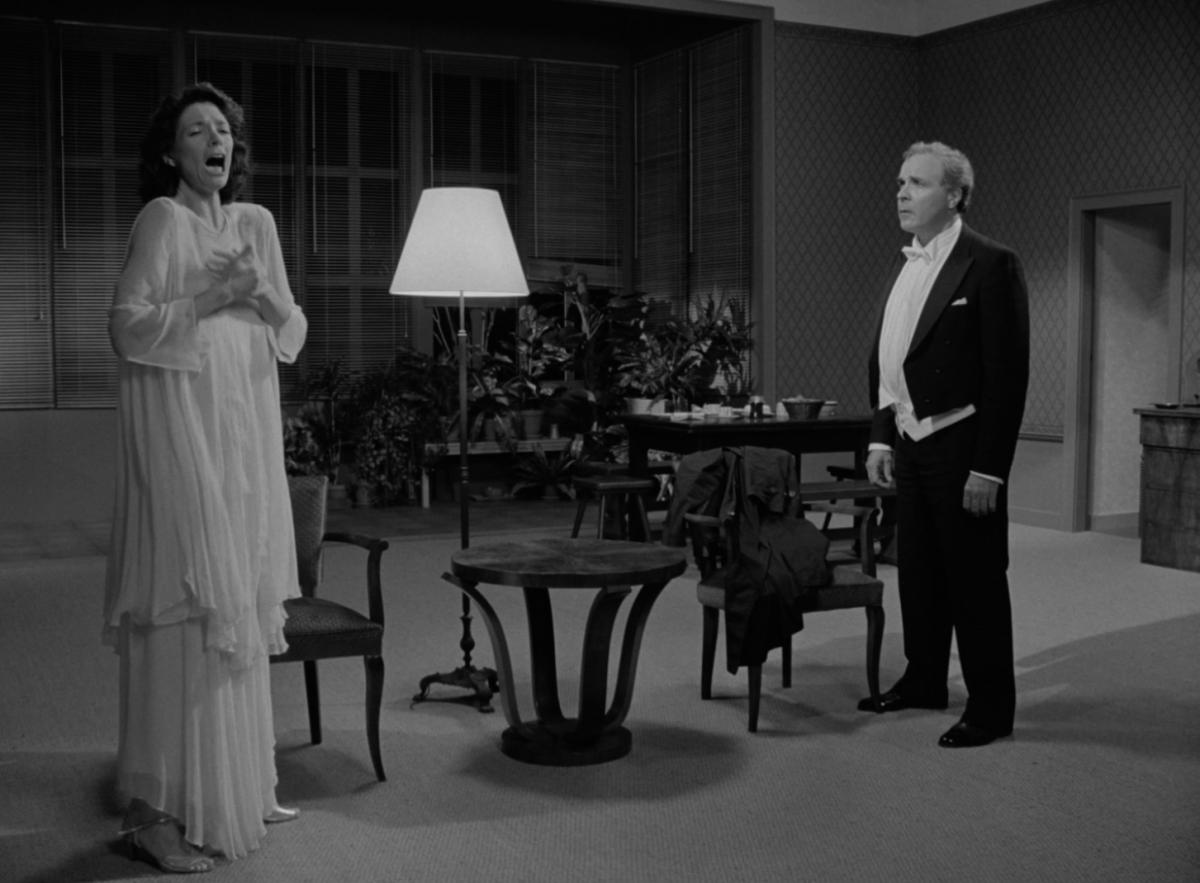From Today Until Tomorrow (1997, 62 min.)

What does it mean to be modern? For Huillet and Straub, the danger of becoming modern – or more generally “modernization” – means to despise all that has gone before and to “chase after shadows,” where everything becomes “privatized, plundered, and destroyed by… (the idea) of growth and development.”1 Schoenberg’s defense for a modern music is given form in his opera Von Heute auf Morgen (1929) based on a libretto by his wife Gertrude under the pseudonym Max Blonda. It is the first opera to make use of Schoenberg’s twelve-tone technique in which no tone recurs until all remaining tones have been used, thereby destabilizing any sense of harmonic center. Yet this wholly modern technique is used in the service of a libretto that relegates the modern, suggested by sexual liberation through open marriage, to simply fashion and a threat to the idea of fidelity. As Max Blonda writes in the libretto, “Fashion is your director but for us, (it is) …dare I say it: love.” Yet Schoenberg’s integration of the twelve-tone technique to defend the tradition of monogamous marriage as a symbol for fidelity, particularly the fidelity of an artistic work to the rigor of its materialization, whether opera or film, speaks to the dialectical nature of what it means to be a radical artist. As Karl Marx once said in A Contribution to the Critique of Hegel’s Philosophy of Right, “to be radical is to grasp things by the root” (Radikal sein ist die Sache an der Wurzel fassen.) But the roots for Schoenberg as well as for Huillet and Straub are located precisely in history and tradition, whereby radicality implies some degree of conservation, preservation, and love. As Straub has remarked, “We have something concrete beneath our feet, the earth, and we must have the ability to enjoy the earth, so as to be in a position to protect it.”2 After Schoenberg’s warning in which a new music is only possible if we care for it, composer Helmut Lachenmann’s response almost ninety years later, with his orchestral work Marche fatale (2017), is entirely negative. His response occurs after the West’s immanent collapse from endless wars and neoliberal economic policies. Indeed, what is called new music today has become decontextualized from tradition and history, endlessly grasping at fashionable trends, and is ultimately marching off a cliff. “Once you’ve hammered into people the idea that only what is contemporary and modern exists, be it economic fashions or the supposed political or moral coercions, then it gets to the point where the human being believes he lives better than anyone has ever lived before or ever could live. No movement occurs anymore.”3 For Huillet and Straub, Von heute auf morgen is “a declaration of war” against modernization to reaffirm the possibility for something truly new, indeed a new music of which Schoenberg would have been proud.
- 1I. Graw, D. Huillet, J.-M. Straub, “Modern Menschen: Ein Interview mit Danièle Huillet und Jean-Marie Straub von Isabelle Graw, “ Texte zur Kunst, Heft Nr. 27 (September 1997 “Form-fragen“), 50.
- 2M. Lylov, E. Marhöfer, J.-M. Straub, “A Thousand Cliffs,” in Tell it to the Stones: Encounters with the Films of Danièle Huillet and Jean-Marie Straub (2021), 389.
- 3I. Graw, ibid.
Image from Von heute auf morgen (Jean-Marie Straub & Danièle Huillet, 1997)
With thanks to Oscar Pedersen, Viktor Retoft and Balthazar.
This article was originally published in Balthazar no. 9, 2023, dedicated to the work of Danièle Huillet and Jean-Marie Straub.

